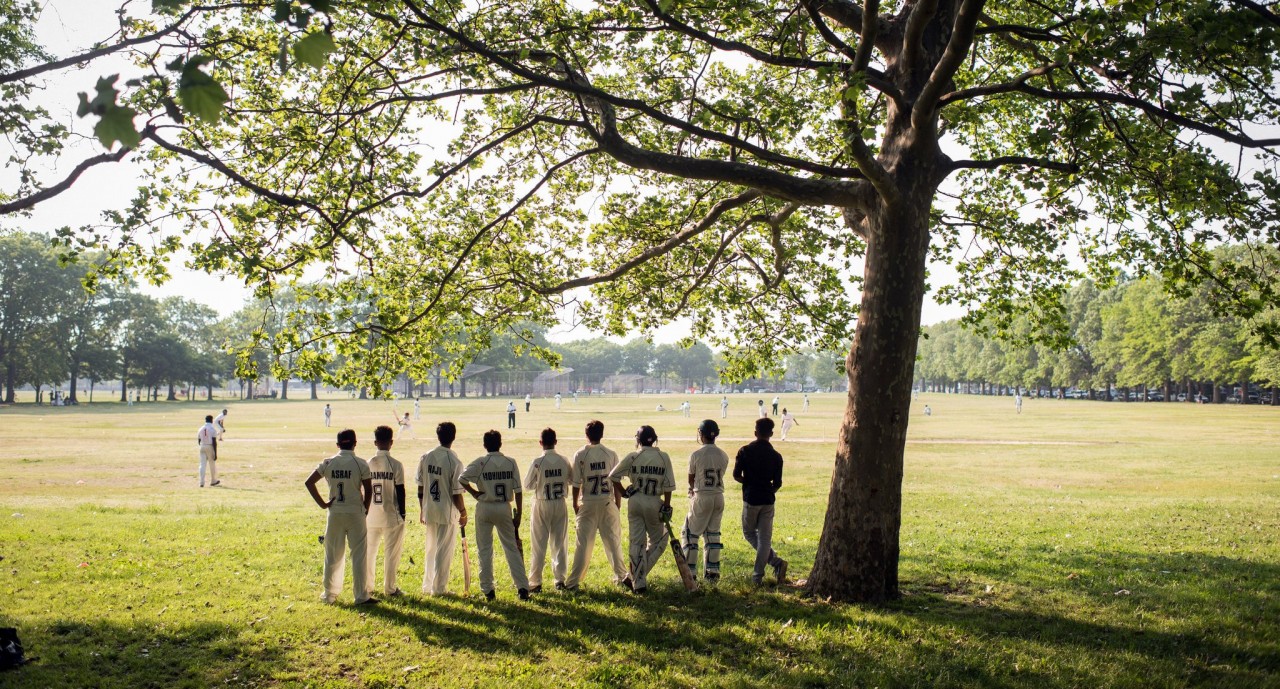West Indies Cricket Fans Forum
Bangladeshi immigrants form bonds in high school while spreading the game in their adopted country.

When Sarujen was 13, his family got word that a relative in New York City would pay to sponsor their entry into the United States. With the help of the International Rescue Committee, his family settled in the Bronx. His father found a job at Lehman College; Sarujen found Brooklyn International.
He recalls that first day. “It was the first time in my life I had sat in a classroom,” he says softly. “I had lots of nerves, lots and lots, but I couldn’t show that. I wanted them to look at me as a friendly, cool student.”
His ability to speak English helped, as did his easy manner. Soon enough, he had made friends of many nationalities. He grinned. “I was cool with everyone.”
Although Bangladeshi players from other schools often see him as one of their own, he speaks not a word of Bengali. “I want to wear a hat: ‘Speak English.’”
His lack of Bengali can work to his favor. When playing Long Island City High, opposing players rained Bengali taunts on him as he pitched. He readied his dipper, a pitch that upon bouncing curves away from or toward a bowler.
“I’m like, ‘Keep talking,’” he says. “I have no idea what you are saying.”
More Than Winning
As the Buckeye cricketers met for early morning practice on that concrete baseball field, trucks rumbled up the ramp to the Manhattan Bridge, and construction cranes perched storklike. This once rough-and-tumble corner of Brooklyn has gone upscale.
Housing economics have changed the face of high school cricket.
Guyana Diaspora Forum
We have a large database of Guyanese worldwide. Most of our readers are in the USA, Canada, and the UK. Our Blog and Newsletter would not only carry articles and videos on Guyana, but also other articles on a wide range of subjects that may be of interest to our readers in over 200 countries, many of them non-Guyanese We hope that you like our selections.
It is estimated that over one million Guyanese, when counting their dependents, live outside of Guyana. This exceeds the population of Guyana, which is now about 750,000. Many left early in the 50’s and 60’s while others went with the next wave in the 70’s and 80’s. The latest wave left over the last 20 years. This outflow of Guyanese, therefore, covers some three generations. This outflow still continues today, where over 80 % of U.G. graduates now leave after graduating. We hope this changes, and soon.
Guyanese, like most others, try to keep their culture and pass it on to their children and grandchildren. The problem has been that many Guyanese have not looked back, or if they did it was only fleetingly. This means that the younger generations and those who left at an early age know very little about Guyana since many have not visited the country. Also, if they do get information about Guyana, it is usually negative and thus the cycle of non-interest is cultivated.
This Guyana Diaspora Online Forum , along with its monthly newsletter, aims at bringing Guyanese together to support positive news, increase travel and tourism in Guyana and, in general, foster the birth of a new Guyana, which has already begun notwithstanding the negative news that grabs the headlines. As the editor and manager of the publication, I am committed to delivering Blog entries and Newsletters that are politically balanced, and focused on the positive ideas we wish to share and foster among Guyanese.
| ||||

